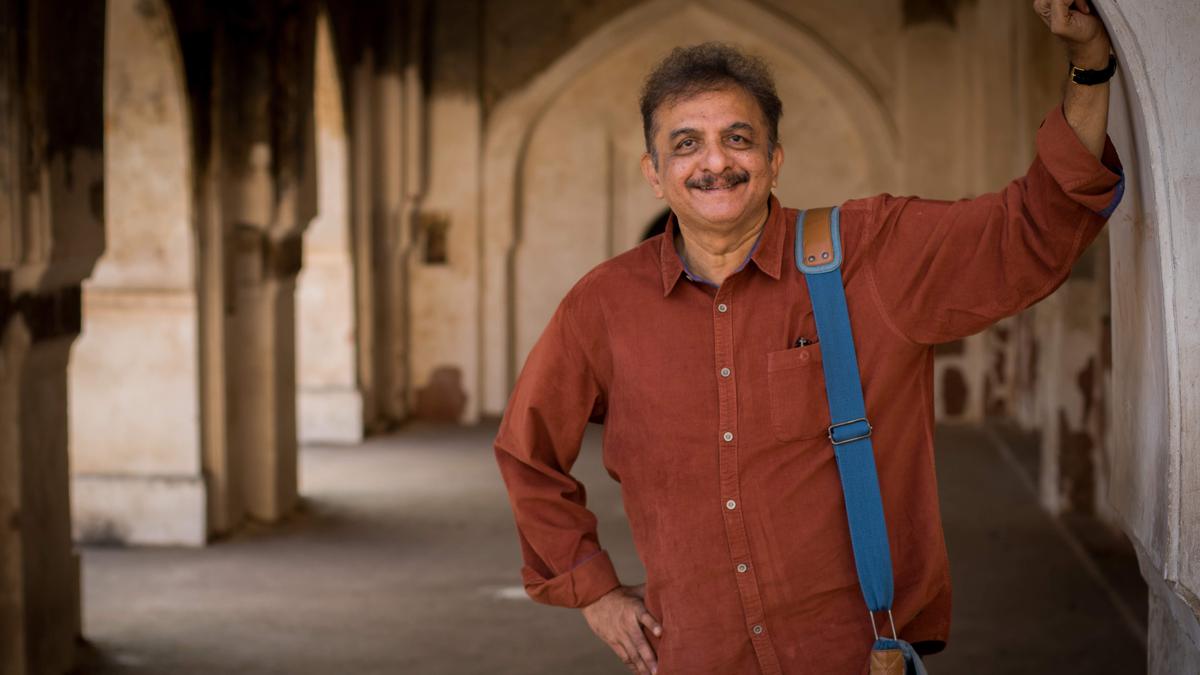
Kannada writer Jayant Kaikini talks about his new book ‘Mithun Number Two and Other Mumbai Stories’
The Hindu
Kannada writer Jayant Kaikini talks about his new book ‘Mithun Number Two and Other Mumbai Stories’
Jayant Kaikini, a seasoned storyteller and a true connoisseur of Mumbai’s culture, embarks on a journey through the city’s heart, using his narrative compass to unveil its soul. He sees the city’s everyday simplicity not just as a way of life but as a spiritual experience.
“Bombay, in its own unique way, simplifies life, even in its language,” he says, from Mumbai, sharing an anecdote that perfectly captures the city’s pragmatic approach to life’s complexities: “The other day, someone told me, ‘Mera father off ho gaya’ (My father switched off).” This linguistic quirk is a testament to the city’s distinct cultural identity.
Jayant reflects on the city’s collective spirit, where its people, driven by a sense of community, readily step forward in moments of need without seeking recognition. According to him, this communal ethos, steeped in mutual assistance and a mindset purified of petty disparities, is the true essence of Mumbai.
Jayant’s latest anthology, Mithun Number Two and Other Mumbai Stories (published by Eka), translated by Tejaswini Niranjana (from Kannada to English), is not about the city per se like Suketu Mehta’s Maximum City was. Yet the stories, spanning from the ‘80s to the 2000s, capture the author’s dialogue with both Bombay and Mumbai.
Growing up in Gokarna, a tranquil temple town, Jayant’s storytelling journey was nurtured amidst the blossoming of modern Kannada literature, pollinated by writers like P Lankesh, Girish Karnad, UR Ananthamurthy, and Yashwant Chittal. A biochemist by training, Jayant’s transition from the scientific to the literary was seamless, propelled by an innate curiosity and a keen observer’s eye. His narrative fabric is rich with the hues of everyday life, capturing the fleeting moments and the quiet emotions that weave through urban life.
In Mithun Number Two and Other Mumbai Stories, the role of Tejaswini Niranjana’s translation is pivotal. She skillfully channels the original’s lyrical prose and deep emotional resonance, offering readers a window into Bombay’s soul through her translation, thereby emphasising the crucial role of translation in making literature accessible to a global audience.
“Collaborating with Tejaswini on translations has been a seamless experience, mainly because she is a poet herself. Not only has she published poetry collections and translated Pablo Neruda into Kannada, but her poetic sensibility aligns closely with mine, making her adept at capturing the evocative tone of my work. Our process involves minimal debate; she creates the first draft, and we jointly decide which stories to include based on their thematic resonance,” adds Jayant.











